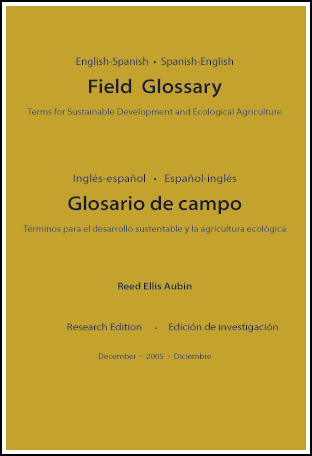PERMACULTURE IN INTL. PERSPECTIVE: NORTH & CENTRAL AMERICA
Are we serious about building a new way of living, a new 'culture'? Won't it feel different from the way it is now? How might it feel? Will it feel foreign to us? How have you felt "at home" in other cultures? What other things have just made sense? For example, I have felt comforted at some deep level by the latin american cultures' attention to shared food and the value of family. By the same token, some aspects of more "sustainable" cultures are more difficult to stomach, such as, for example, mortality. What will it mean to live with the more constricted life expectancy that might result from a health-care system that is not propped up by fossil fuels? How might we deal with that, as individuals, families, communities and societies? Many traditional and indigenous cultures have a strong connection with death, and it is often celebrated at this time of year, around the end of October and beginning of November. I have had the good fortune to be involved in a Day of the Dead project with my mostly Mexican high school students, who still carry this tradition on. What are the deeper cultural shifts that we must make to be able to come to terms with some of the more harsh realities of ecological honesty, such as our population and resource use?
Perspectives
The "Two-Thirds World" offers us several important perspectives on the cultural and material shifts that are before us:
- Understanding our own plight: The developing world is facing similar erosions of traditional sustainable cultures as have been occurring here since before the industrial revolution.
- Premonition: Most people on the planet are operating in highly inequitable, resource-scarce environments. Signs point to us heading that way too.
- Laboratory: In the tropics, where most of the world's cultural and ecological actors live, we can watch things grow much faster than we can see in the north. This is true of land-based social systems as well as other living systems.
- Connection: What are we wearing that is from the tropics? Our way of life, our t-shirts and sneakers, our tools and the machines which make our tools, are tightly bound with the economy and lifestyles of those living in tropical regions and other parts of the global South.
Here are a few observations and resources from around the world.
Canada
In general, Canadian people with critical, ethical and practical faculties have spent more time developing social systems that work on a reasonable, small scale than have people from the USA. In the USA, especially over the past 4 decades, we have spent a lot of time arguing about the ethical dimensions of our nations' participation in global imperial schemes, wars, and other actions. The Canadians have not had to worry as much about their governments' intervention in places like Viet Nam, Barbados, Chile, Cuba, Nicaragua, Iran, Panama, Guatemala, etc. etc. etc. They have had more time to do things like launch an Office of Urban Agriculture and generally develop local food and energy systems. I don't know a lot about Canadian Permaculture, but I know there are a lot of awesome projects there.
Native Nations within the USA
Several Native projects are especially of note:
- Tsyunhehkw^, a project of the Oneida Nation of Wisconsin, meaning"Life Sustenance"
- The Traditional Native American Farmers' Association, run by Clayton Brascoupé in New Mexico
- Louie Hena and his community's food project at Tesuque Pueblo in New Mexico
- White Earth Land Recovery Project is doing many awesome projects with traditional agriculture of the Upper Midwest, including the annual Great Lakes Indigenous Farming Conference.
- Dream of Wild Health, a native gardening project outside of the Twin Cities implementing a 10-acre permaculture design on their production and education farm.
Mexico
- CIDECAM is an amazing project in Oaxaca, drawing on local indigenous knowledge, a source for permaculture thinking.
- Las Cañadas Ecovillage is an interesting and well-developed experiment in Veracruz.
- La Fortuna, a dryland tropical species rich botanical garden with over 3500 species, developed by Gabriel Howarth
- Tierra del Sol in Oaxaca, MX, an Education Center for Sustainable Culture.
Central America
- IMAP (Mesoamerican Permaculture Institute)
- IPES (Permaculture Institute of El Salvador)
- Project Bona Fide, Nicaragua (Ometepe Island, Lake Nicaragua)
More soon. Contact us to suggest a link or ask a question.


